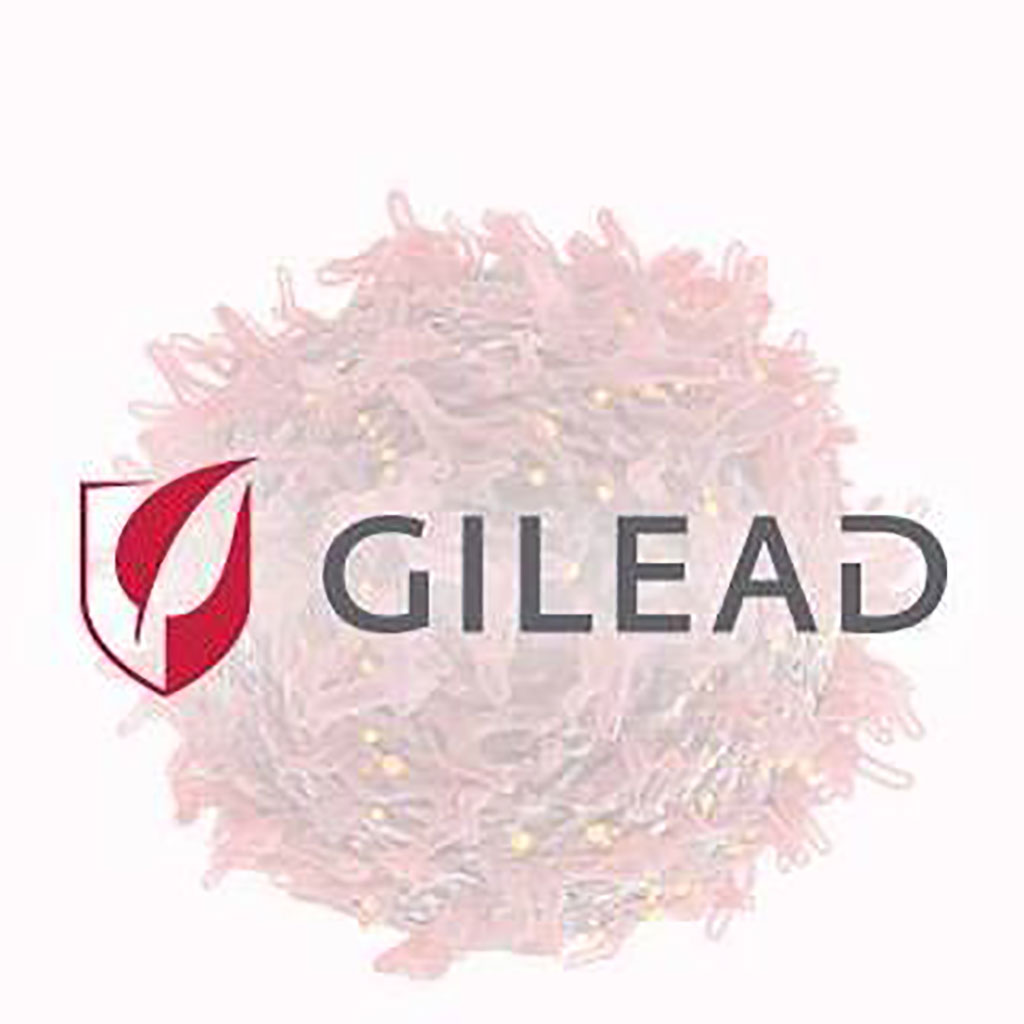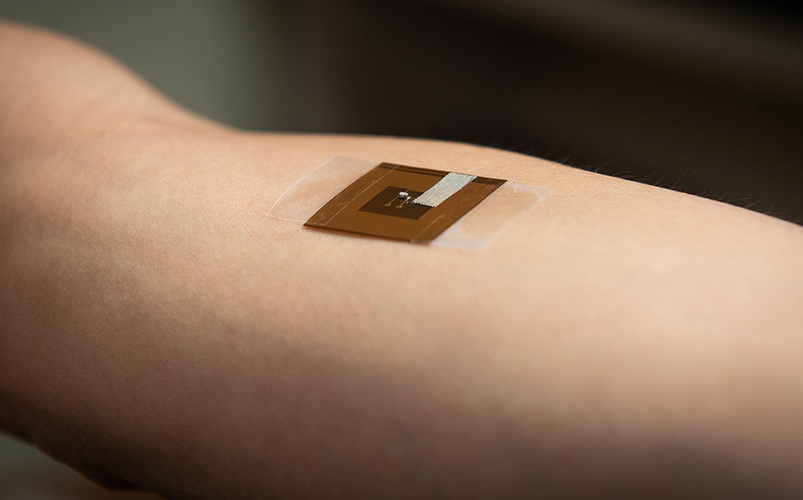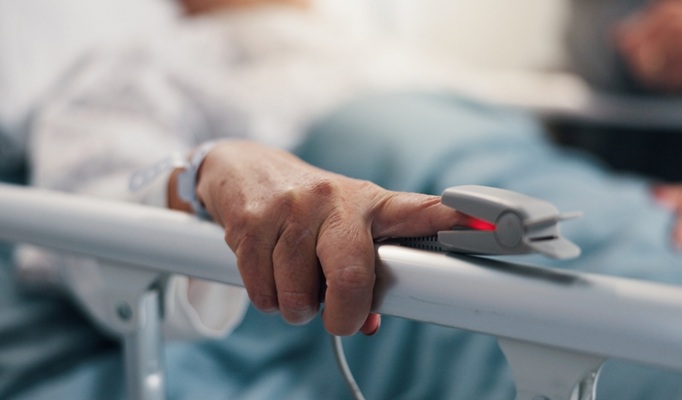Gilead's Remdesivir Should Not Be Used in Hospitalized COVID-19 Patients, Says WHO
|
By HospiMedica International staff writers Posted on 23 Nov 2020 |

Illustration
Gilead Sciences’ (Foster City, CA, USA) investigational antiviral drug remdesivir is not suggested for patients admitted to hospital with COVID-19, irrespective of how severely ill they are, as there is currently no evidence that it improves survival or the need for ventilation, according to a WHO Guideline Development Group (GDG) panel of international experts.
The recommendation is part of a living guideline, developed by the WHO with the methodological support of MAGIC Evidence Ecosystem Foundation, to provide trustworthy guidance on the management of COVID-19 and help doctors make better decisions with their patients. Living guidelines are useful in fast moving research areas like COVID-19 as they allow researchers to update previously vetted and peer reviewed evidence summaries as new information becomes available.
Remdesivir (sold under the brand name Veklury) has received worldwide attention as a potentially effective treatment for severe COVID-19 and is increasingly used to treat patients in hospital. However, its role in clinical practice has remained uncertain. The latest recommendation is based on a new evidence review comparing the effects of several drug treatments for COVID-19. It includes data from four international randomized trials involving over 7,000 patients hospitalized for COVID-19.
After thoroughly reviewing this evidence, the WHO GDG expert panel, which includes experts from around the world, including four patients who have had COVID-19, concluded that remdesivir has no meaningful effect on mortality or on other important outcomes for patients, such as the need for mechanical ventilation or time to clinical improvement. The panel acknowledged that the certainty of evidence is low and said the evidence did not prove that remdesivir has no benefit; rather, there is no evidence based on currently available data that it does improve important patient outcomes.
In response, Gilead has issued a statement expressing disappointment at the WHO guidelines which it said appeared to ignore robust evidence from multiple randomized, controlled studies published in peer-reviewed journals that demonstrate the clinical benefits of remdesivir, such as significantly faster recovery, which can free up limited hospital resources. According to Gilead, the WHO guidelines relied on data from the WHO-led Solidarity trial data. Key data from the Solidarity trial that would allow clinicians, regulators and Gilead to evaluate the quality and reliability of the interim results from the trial have not been made available and have not been peer-reviewed. Gilead claimed that the results released to date were inconsistent with more robust evidence from the NIAID trial and the company’s open-label trials, whose results have validated the clinical benefit of remdesivir.
Gilead said that the WHO guidelines were particularly disappointing because they came at a time when cases are dramatically increasing around the world and doctors are relying on remdesivir as the first and only approved antiviral treatment for patients with COVID-19 with approvals or authorizations in approximately 50 countries.
Related Links:
Gilead Sciences
The recommendation is part of a living guideline, developed by the WHO with the methodological support of MAGIC Evidence Ecosystem Foundation, to provide trustworthy guidance on the management of COVID-19 and help doctors make better decisions with their patients. Living guidelines are useful in fast moving research areas like COVID-19 as they allow researchers to update previously vetted and peer reviewed evidence summaries as new information becomes available.
Remdesivir (sold under the brand name Veklury) has received worldwide attention as a potentially effective treatment for severe COVID-19 and is increasingly used to treat patients in hospital. However, its role in clinical practice has remained uncertain. The latest recommendation is based on a new evidence review comparing the effects of several drug treatments for COVID-19. It includes data from four international randomized trials involving over 7,000 patients hospitalized for COVID-19.
After thoroughly reviewing this evidence, the WHO GDG expert panel, which includes experts from around the world, including four patients who have had COVID-19, concluded that remdesivir has no meaningful effect on mortality or on other important outcomes for patients, such as the need for mechanical ventilation or time to clinical improvement. The panel acknowledged that the certainty of evidence is low and said the evidence did not prove that remdesivir has no benefit; rather, there is no evidence based on currently available data that it does improve important patient outcomes.
In response, Gilead has issued a statement expressing disappointment at the WHO guidelines which it said appeared to ignore robust evidence from multiple randomized, controlled studies published in peer-reviewed journals that demonstrate the clinical benefits of remdesivir, such as significantly faster recovery, which can free up limited hospital resources. According to Gilead, the WHO guidelines relied on data from the WHO-led Solidarity trial data. Key data from the Solidarity trial that would allow clinicians, regulators and Gilead to evaluate the quality and reliability of the interim results from the trial have not been made available and have not been peer-reviewed. Gilead claimed that the results released to date were inconsistent with more robust evidence from the NIAID trial and the company’s open-label trials, whose results have validated the clinical benefit of remdesivir.
Gilead said that the WHO guidelines were particularly disappointing because they came at a time when cases are dramatically increasing around the world and doctors are relying on remdesivir as the first and only approved antiviral treatment for patients with COVID-19 with approvals or authorizations in approximately 50 countries.
Related Links:
Gilead Sciences
Latest COVID-19 News
- Low-Cost System Detects SARS-CoV-2 Virus in Hospital Air Using High-Tech Bubbles
- World's First Inhalable COVID-19 Vaccine Approved in China
- COVID-19 Vaccine Patch Fights SARS-CoV-2 Variants Better than Needles
- Blood Viscosity Testing Can Predict Risk of Death in Hospitalized COVID-19 Patients
- ‘Covid Computer’ Uses AI to Detect COVID-19 from Chest CT Scans
- MRI Lung-Imaging Technique Shows Cause of Long-COVID Symptoms
- Chest CT Scans of COVID-19 Patients Could Help Distinguish Between SARS-CoV-2 Variants
- Specialized MRI Detects Lung Abnormalities in Non-Hospitalized Long COVID Patients
- AI Algorithm Identifies Hospitalized Patients at Highest Risk of Dying From COVID-19
- Sweat Sensor Detects Key Biomarkers That Provide Early Warning of COVID-19 and Flu
- Study Assesses Impact of COVID-19 on Ventilation/Perfusion Scintigraphy
- CT Imaging Study Finds Vaccination Reduces Risk of COVID-19 Associated Pulmonary Embolism
- Third Day in Hospital a ‘Tipping Point’ in Severity of COVID-19 Pneumonia
- Longer Interval Between COVID-19 Vaccines Generates Up to Nine Times as Many Antibodies
- AI Model for Monitoring COVID-19 Predicts Mortality Within First 30 Days of Admission
- AI Predicts COVID Prognosis at Near-Expert Level Based Off CT Scans
Channels
Critical Care
view channel
Wearable Patch for Early Skin Cancer Detection to Reduce Unnecessary Biopsies
Skin cancer remains one of the most dangerous and common cancers worldwide, with early detection crucial for improving survival rates. Traditional diagnostic methods—visual inspections, imaging, and biopsies—can... Read more
Pulse Oximeter Index Offers Non-Invasive Guides for Fluid Therapy
In patients with acute circulatory failure, deciding whether to administer intravenous fluids is often a life-or-death decision. Too little fluid can leave organs underperfused, while too much can cause... Read moreSurgical Techniques
view channel
Robotic Assistant Delivers Ultra-Precision Injections with Rapid Setup Times
Age-related macular degeneration (AMD) is a leading cause of blindness worldwide, affecting nearly 200 million people, a figure expected to rise to 280 million by 2040. Current treatment involves doctors... Read more
Minimally Invasive Endoscopic Surgery Improves Severe Stroke Outcomes
Intracerebral hemorrhage, a type of stroke caused by bleeding deep within the brain, remains one of the most challenging neurological emergencies to treat. Accounting for about 15% of all strokes, it carries... Read morePatient Care
view channel
Revolutionary Automatic IV-Line Flushing Device to Enhance Infusion Care
More than 80% of in-hospital patients receive intravenous (IV) therapy. Every dose of IV medicine delivered in a small volume (<250 mL) infusion bag should be followed by subsequent flushing to ensure... Read more
VR Training Tool Combats Contamination of Portable Medical Equipment
Healthcare-associated infections (HAIs) impact one in every 31 patients, cause nearly 100,000 deaths each year, and cost USD 28.4 billion in direct medical expenses. Notably, up to 75% of these infections... Read more
Portable Biosensor Platform to Reduce Hospital-Acquired Infections
Approximately 4 million patients in the European Union acquire healthcare-associated infections (HAIs) or nosocomial infections each year, with around 37,000 deaths directly resulting from these infections,... Read moreFirst-Of-Its-Kind Portable Germicidal Light Technology Disinfects High-Touch Clinical Surfaces in Seconds
Reducing healthcare-acquired infections (HAIs) remains a pressing issue within global healthcare systems. In the United States alone, 1.7 million patients contract HAIs annually, leading to approximately... Read moreHealth IT
view channel
Printable Molecule-Selective Nanoparticles Enable Mass Production of Wearable Biosensors
The future of medicine is likely to focus on the personalization of healthcare—understanding exactly what an individual requires and delivering the appropriate combination of nutrients, metabolites, and... Read moreBusiness
view channel
Philips and Masimo Partner to Advance Patient Monitoring Measurement Technologies
Royal Philips (Amsterdam, Netherlands) and Masimo (Irvine, California, USA) have renewed their multi-year strategic collaboration, combining Philips’ expertise in patient monitoring with Masimo’s noninvasive... Read more
B. Braun Acquires Digital Microsurgery Company True Digital Surgery
The high-end microsurgery market in neurosurgery, spine, and ENT is undergoing a significant transformation. Traditional analog microscopes are giving way to digital exoscopes, which provide improved visualization,... Read more
CMEF 2025 to Promote Holistic and High-Quality Development of Medical and Health Industry
The 92nd China International Medical Equipment Fair (CMEF 2025) Autumn Exhibition is scheduled to be held from September 26 to 29 at the China Import and Export Fair Complex (Canton Fair Complex) in Guangzhou.... Read more

















